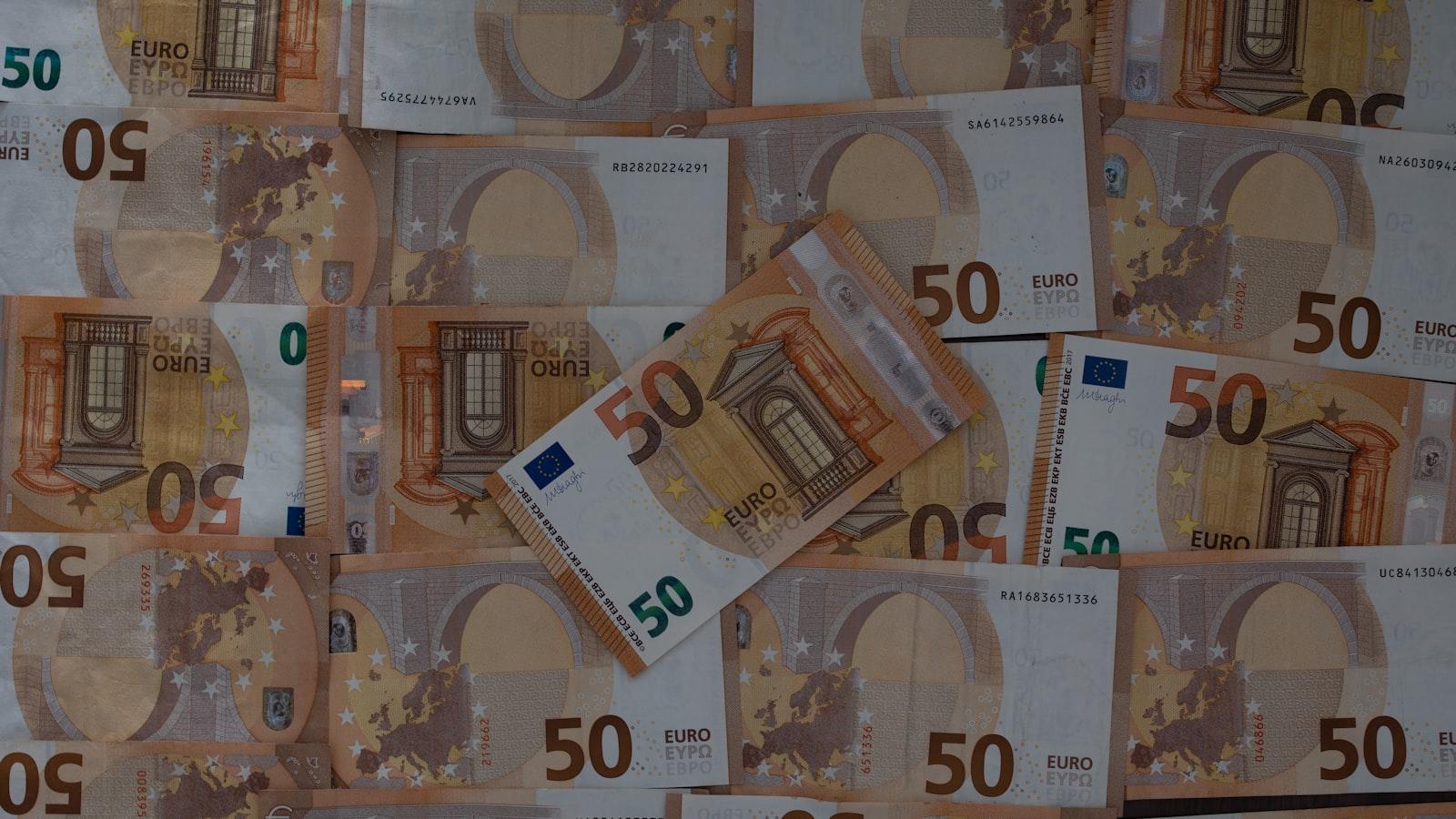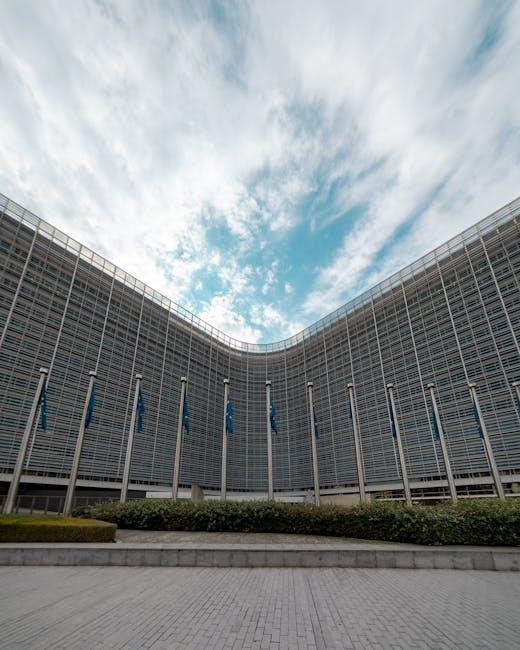In the sun-drenched streets and bustling plazas of Spain, beneath the shadow of ornate cathedrals and amidst the cacophony of vibrant markets, a silent question lingers like the subtle scent of orange blossoms in the air: What does the future hold for the European Union? Among the diverse and dynamic people of Spain, a nation that dances to the rhythm of its own rich history while firmly anchored in the heart of Europe, a thought-provoking statistic has emerged – one in four Spaniards believe the survival of the EU is hanging by a thread. This striking sentiment, nestled within the minds of a people known for their passion, resilience, and deep-rooted connection to the continent, invites us to explore the complex tapestry of beliefs, fears, and aspirations that shape their view of Europe’s future. As we delve into this mosaic of opinions, we embark on a journey that will take us beyond the surface of this statistic, seeking to understand the myriad forces at play in the hearts of Spaniards and what it potentially spells for the European Union, a beacon of unity and diversity facing the winds of change.
Sounding the Alarm: The Spanish Perspective on EU’s Precarious Future
In the vibrant tapestry that is European unity, the thread of Spain weaves a complex pattern of caution and concern. With one in four Spaniards casting a wary eye on the future of the European Union, a palpable tension hovers over the Iberian Peninsula. This sentiment is not a mere whisper in the wind; it is a booming echo resonating through the halls of history, where Spain’s own tumultuous past with economic crises and political upheavals shadows its perspective on continental unity. The Spanish skepticism towards the EU’s longevity speaks volumes, underscoring a profound apprehension that perhaps all is not well on the European front.
This outcrop of doubt among Spaniards is rooted in a mix of economic, social, and political concerns. Listlessly, the winds of discord seem to be fueled by:
- Economic instability: Lingering effects of past recessions, high unemployment rates, and a perceived imbalance in economic support from the EU.
- Social issues: Rising populism, migration challenges, and the perception of cultural identity erosion against a backdrop of increased European integration.
- Political dilemmas: Questions over sovereignty, the EU’s handling of crises (such as the COVID-19 pandemic), and bureaucratic complexities that seem to muddle rather than manage continental affairs.
Compounded by these issues, the skeptical viewpoint held by a quarter of Spain’s population brings a critical discourse to the forefront of European conversations. As this perspective continues to shape debates on the future of the EU, it serves as a clarion call to action for both Spanish and European leaders alike. They are urged to address these existential anxieties with tangible reforms, fostering a sense of unity, stability, and optimism about the European project’s resilience.
The Tug of Euro-skepticism: Dissecting Spanish Concerns
In the vibrant tapestry of European Union sentiment, the thread of Euro-skepticism weaves a complex pattern, especially in countries like Spain, where economic turbulence and political upheaval have historically sparked debates about the value and future of EU membership. Indeed, recent surveys reveal a striking figure: **one in four Spaniards** now harbor doubts about the EU’s longevity, amplifying concerns over unity, financial stability, and sovereignty. This growing skepticism is not a monolith but a mosaic of worries, from the handling of economic crises to the distribution of power within the Union’s institutions.
- **Economic Policies and Unemployment:** Critics point to the EU’s austerity measures and their impact on Spain’s job market, arguing that stringent fiscal policies have hindered economic recovery and exacerbated unemployment rates, particularly among the youth.
- **Immigration and Border Control:** Another facet of this skepticism stems from the handling of immigration and border security. Issues surrounding the Schengen Agreement and the perceived lack of support in managing influxes of migrants and refugees have fueled debates on national sovereignty vs. collective EU policy.
- **Centralization of Power:** Concerns about the EU’s structure, especially the perception that decision-making is too centralized, have also surfaced. Many Spaniards fear that their country’s voice and interests are diluted in a sea of broader EU ambitions, pointing toward a desire for reforms that would grant member states more autonomy.
Table: Key Concerns Among Euro-skeptic Spaniards
| Concern | Percentage of Respondents |
|---|---|
| Economic Policies Impact | 40% |
| Immigration & Border Control | 30% |
| Centralization of Power | 25% |
| Others | 5% |
The fabric of Spanish Euro-skepticism is thus characterized by a blend of economic grievances, sovereignty concerns, and a craving for institutional reform. This sentiment underscores a critical juncture for Spain and the EU at large, inviting introspection and dialogue on the structure, policies, and future direction of the Union. As Spain grapples with these issues, the broader European community must also confront the underlying challenges that give rise to skepticism, working collaboratively to weave a more inclusive, resilient, and prosperous future.
Blueprint for Unity: Charting a Course for the European Union’s Resilience
In an illuminating display of the prevailing sentiment among the Spanish populace, a recent survey sheds light on the growing concerns regarding the European Union’s future amidst turbulent times. A striking figure emerges from the data: one in four Spaniards now harbor doubts about the EU’s longevity, spotlighting the intricate tapestry of challenges and uncertainties that lie ahead. This development is not merely a statistical anomaly but a potent indicator of the socio-political undercurrents that are shaping perceptions and attitudes across Spain. The reasons behind this skepticism are manifold, ranging from economic disparities and political disillusionment to broader existential threats that have prompted a reevaluation of the EU’s role in safeguarding its member states’ interests and well-being.
To dissect the complexities of this sentiment, it’s crucial to delve into the specific areas that are fueling these apprehensions. Among the key concerns are:
- Economic Instability: The specter of financial crises and the perceived inadequacies in the EU’s economic governance mechanisms.
- Political Disunity: Growing fissures within the EU’s political landscape, exacerbated by rising nationalism and fragmented responses to global challenges.
| Concern | Percentage of Spaniards |
|---|---|
| Economic Instability | 45% |
| Political Disunity | 35% |
This tableau of concerns elucidates the daunting challenges the European Union faces in its quest to remain a cohesive and formidable entity on the global stage. It’s a clarion call for a concerted effort to forge a blueprint for unity and resilience, necessitating a thoughtful recalibration of the EU’s strategies to address the internal and external forces that threaten its very fabric. As Spain grapples with these existential dilemmas, the path forward demands not only a steadfast commitment to the European project but also innovative solutions that are equitable, sustainable, and reflective of the diverse aspirations of its citizenry.
Strengthening Bonds Across Borders: Spain’s Role in Fostering EU Solidarity
In the heart of vibrant discussions and debates about the future of the European Union, a noteworthy perspective emerges from Spain, shedding light on the existing concerns and aspirations its population holds regarding the EU’s cohesion and resilience. Amid a tapestry of cultural exchanges, economic interactions, and political collaborations, a recent survey reveals a significant sentiment among the Spanish populace – a considerable segment, precisely one in four Spaniards, harbors apprehensions about the EU’s capability to endure the multifaceted challenges it faces today. This statistic not only captures the essence of uncertainty felt by many but also underscores the necessity for reinforcing the bonds that unite the EU member states.
With Spain playing a pivotal role in advancing EU solidarity, the focus has now shifted towards nurturing a sense of belonging and shared responsibility among its citizens and those of other member nations. Several strategies are actively being pursued to accomplish this goal:
- Enhancing cultural exchanges to deepen mutual understanding and respect amongst the diverse cultures within the EU.
- Strengthening economic ties through initiatives that promote sustainable growth and job creation across borders.
- Encouraging political dialogue and participation to forge a more inclusive and democratic European governance structure.
These endeavors are designed not only to address the immediate concerns highlighted by the Spanish citizenry but also to lay down a robust foundation for a united and resilient European Union, prepared to face the uncertainties of tomorrow with confidence.
Key Takeaways
As the sun sets over the cobblestone streets of Spain, casting long shadows that stretch like fingers across the vibrant, history-steeped landscapes, a thought lingers in the air, as palpable as the scent of blooming orange blossoms – the future of the European Union, as seen through the eyes of one in four Spaniards, hangs in a delicate balance. This sentiment, a cocktail of concern, hope, and resilience, encapsulates not just a statistic but a mirror to the broader, complex emotions sweeping across the continent.
In navigating the intricate dance of unity and sovereignty, the voices from Spain remind us that the tapestry of Europe is woven with threads of diverse opinions, each thread as crucial as the next in holding the fabric of the Union together. As we stand at the crossroads of history, acknowledging these concerns becomes not just an act of listening, but a step towards understanding the collective and individual hopes that shape our shared European destiny.
The discussion doesn’t end here, of course. It’s merely another chapter in the ongoing narrative of Europe, an entity constantly evolving, facing challenges, and embracing changes. The view from Spain offers a poignant insight, a snapshot of sentiment that invites reflection and dialogue, encouraging us to ponder not only the survival of the EU but also the values, dreams, and aspirations that define it.
In the grand tapestry of the European Union, every thread, every color, and every pattern – no matter how seemingly disparate – contributes to the strength and beauty of the whole. As we close this chapter, the conversation about the EU’s future continues, a dialogue as rich and varied as the member states themselves, each voice an integral note in the symphony of European unity. The uncertainty about the future may loom large, but so does the enduring spirit of cooperation and the relentless pursuit of harmony. After all, the EU is not just an alliance of countries; it’s a testament to the enduring human aspiration for peace, prosperity, and unity in diversity.




